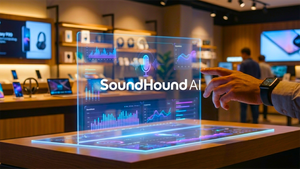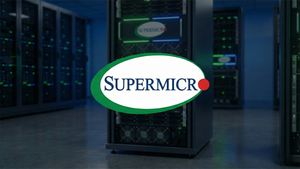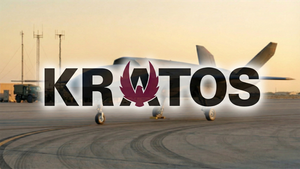
In a landmark achievement that reverberates across the global financial markets, Alphabet (NASDAQ: GOOGL), the parent company of Google, officially surpassed a staggering $3 trillion market capitalization on September 15, 2025. This monumental milestone places Alphabet in an exclusive cohort of the world's most valuable companies, alongside tech behemoths like Apple (NASDAQ: AAPL), Microsoft (NASDAQ: MSFT), and Nvidia (NASDAQ: NVDA). The remarkable surge in its valuation reflects burgeoning investor confidence, primarily driven by the company's aggressive strides in artificial intelligence (AI) innovation and a pivotal, favorable ruling in a recent, high-stakes antitrust case.
The company’s shares climbed more than 4% on the day of the market cap increase, underscoring robust investor sentiment. Alphabet’s stock has demonstrated exceptional performance throughout 2025, gaining over 30% since the beginning of the year and approximately 17% since the start of September, showcasing significant upward momentum in a dynamic market.
AI Optimism and Antitrust Clarity Propel Alphabet's Ascent
Alphabet's journey to the $3 trillion valuation is a narrative woven with threads of technological prowess and shrewd legal navigation. At its core, the driving force has been the widespread optimism surrounding its extensive investments and innovations in artificial intelligence. Investors are increasingly confident in the company's ability to integrate sophisticated AI tools across its diverse product ecosystem, particularly in its lucrative advertising and rapidly expanding cloud computing segments.
Google Cloud, a key growth driver, reported a notable 32% year-over-year revenue increase in the second quarter of 2025, a surge largely powered by the adoption of advanced AI services that attracted new customers and facilitated larger deal sizes. AI capabilities have substantially optimized ad targeting and boosted user engagement, directly contributing to Google’s core advertising revenue growth. CEO Sundar Pichai has consistently emphasized that AI is "positively impacting every part of the business, driving strong momentum." Alphabet is channeling substantial capital into AI research and development (R&D) and infrastructure, with planned capital expenditures around $75 billion for 2025, underscoring its commitment to maintaining a leading edge. The company's flagship AI platform, Gemini, is central to its ambitions, with advanced versions being integrated into key products like Search through "AI Overviews" and showcased with groundbreaking innovations like Veo 3 for AI-driven video generation.
Complementing this technological surge was a critical, favorable resolution in a high-profile antitrust case. On September 15, 2025, a U.S. federal court delivered a ruling that allowed Alphabet to maintain control of its highly valuable Chrome browser and Android operating system. This decision brought an end to a lengthy antitrust proceeding where the Department of Justice (DOJ) had sought to force Google to divest Chrome, a move that would have significantly impacted its core advertising revenue. The ruling was widely perceived as a major victory for Alphabet, alleviating significant investor concerns and removing a substantial "overhang" that had been weighing on the company’s valuation. While the company is now mandated to share certain search data with competitors and prohibited from entering exclusive distribution agreements, these concessions are viewed as manageable compared to the potential business disruption of a forced breakup. The court's "subdued ruling" was notably influenced by the disruptive potential of artificial intelligence, with Judge Amit Mehta noting that the rise of generative AI "changed the course of this case," suggesting AI's advancements could inherently challenge existing monopolies.
Wall Street analysts overwhelmingly recommended buying Alphabet stock, with many raising their price targets, recognizing the confluence of positive regulatory decisions, growing AI excitement, and robust performance in its core segments. While specific immediate reactions from direct competitors were not detailed, the achievement of such a monumental market cap by Alphabet (NASDAQ: GOOGL) often reinforces the high stakes and intense competition within the tech industry, underscoring the ongoing race for dominance in areas like AI, cloud computing, and digital advertising. Key stakeholders in Alphabet's growth include its co-founders Larry Page and Sergey Brin, CEO Sundar Pichai, major institutional investors like The Vanguard Group and BlackRock Inc. (NYSE: BLK), countless advertisers, billions of users, and the crucial regulatory bodies that shape its operating environment.
The Shifting Sands: Market Winners and Potential Losers
Alphabet’s ascension to the $3 trillion market cap club, fueled by its AI advancements and regulatory relief, inevitably creates a ripple effect, delineating clear winners and intensifying pressure on potential losers across the tech landscape.
The most evident winner is Alphabet (NASDAQ: GOOGL) itself, with its stock experiencing a significant rally. Its strong financial performance is bolstered by robust growth in its core advertising business and the accelerating momentum of Google Cloud. The cloud division has demonstrated impressive growth, with a 32% year-on-year jump in second-quarter revenue, often exceeding expectations due to increased investments in custom AI chips and the broader adoption of AI tools by enterprise customers. Furthermore, companies that provide the foundational hardware and software for AI, such as GPU manufacturers like Nvidia (NASDAQ: NVDA) and specialized cloud providers, continue to be significant beneficiaries, riding the wave of demand for AI data centers and processing power.
However, Alphabet’s triumph presents a mixed bag for its competitors. In the fiercely competitive AI landscape, while Alphabet’s retention of Chrome and Android preserves its extensive ecosystem, potentially hindering rivals' access to users, the antitrust ruling also mandates data sharing. This could theoretically provide valuable Google search data insights to competitors like Microsoft’s (NASDAQ: MSFT) Bing, allowing them to improve their AI models and search capabilities. Nonetheless, new AI-powered search tools, such as OpenAI’s ChatGPT and Perplexity AI, are already bypassing traditional search engines, posing a long-term threat to Alphabet's core advertising revenue streams. Analysts warn that a significant market share capture by these AI-driven competitors could lead to a substantial drop in Alphabet’s stock.
In cloud computing, Google Cloud's accelerated growth, driven by AI investments and superior custom chips, intensifies the competition for market share against established leaders like Amazon Web Services (AWS) (NASDAQ: AMZN) and Microsoft Azure (NASDAQ: MSFT). While AWS and Microsoft still hold significant leads in the global cloud infrastructure services market, Google Cloud's rapid expansion demands continuous innovation and investment from all players to maintain or gain ground.
For digital advertising competitors such as Meta Platforms (NASDAQ: META) and Amazon (NASDAQ: AMZN), Alphabet’s continued dominance in digital advertising is reinforced, with Alphabet projected to surpass $200 billion in net digital ad revenue in 2025. The antitrust mandate requiring data sharing and prohibiting exclusive search distribution contracts could theoretically level the playing field for smaller adtech firms and benefit some advertising competitors by providing them with more actionable data. However, broader global regulations like the EU’s Digital Markets Act and various US state laws are pushing for more privacy-centric advertising, challenging Alphabet’s data-driven ad model and potentially leading to market fragmentation that allows regional players and AI-native platforms to contest its dominance.
Industry Shift and Broader Implications
Alphabet's (NASDAQ: GOOGL) ascent to a $3 trillion market capitalization is more than just a financial milestone; it is a potent indicator of profound shifts within the technology industry and broader economic trends. This achievement solidifies the ongoing narrative of the "Magnificent Seven" – Apple (NASDAQ: AAPL), Microsoft (NASDAQ: MSFT), Alphabet (NASDAQ: GOOGL), Amazon (NASDAQ: AMZN), Nvidia (NASDAQ: NVDA), Meta Platforms (NASDAQ: META), and Tesla (NASDAQ: TSLA) – as the primary engines of market growth. Alphabet's shares have rallied over 32% year-to-date in 2025, outperforming several of its peers and reinforcing the notion that these tech giants, especially those deeply invested in AI, are driving a substantial portion of overall market expansion.
The ripple effects on competitors and partners are significant. Alphabet’s robust momentum, particularly with its advanced Gemini AI models, intensifies the already fierce competition with rivals such as OpenAI, Meta (NASDAQ: META), and numerous AI startups. This escalating AI race is compelling all major players to accelerate their innovation cycles, commit massive capital expenditures, and aggressively integrate AI across their product portfolios. For partners, the favorable U.S. court ruling that preserved Alphabet's control over Chrome and Android is a critical development. It ensures the stability and continuity of a vast, integrated ecosystem that numerous businesses and developers rely upon. This averted breakup means that Alphabet can continue its expansion without compromising its technology stack, which benefits its entire network of associated entities. The successful integration of Gemini across platforms like Search, Workspace, and advertising further deepens its value proposition for partners and reinforces ecosystem expansion.
From a regulatory standpoint, the recent antitrust ruling represents a pivotal moment. The decision, seen as relatively mild compared to the dramatic restructuring sought by prosecutors, brings a sense of relief across the broader tech sector, potentially signaling a more cautious approach to structural remedies for other companies facing similar challenges. However, this does not imply an end to regulatory scrutiny. Governments in the U.S. and Europe, including the Department of Justice (DOJ) and the European Union, continue to focus on competition, data protection, and business conduct of large tech firms. While the immediate threat of a breakup has receded, future regulatory developments and mandated behavioral changes will continue to influence Alphabet's strategies and operations, particularly regarding data sharing and ensuring fair competition in the AI era.
Historically, the most valuable companies have always reflected the dominant economic drivers of their time. From railroads and steel to today's tech giants, the shift in market leadership underscores an accelerating trend of market capitalization growth for dominant tech firms in the 21st century. Alphabet's swift ascent to the $3 trillion mark, just two decades after Google's initial public offering, highlights the unprecedented speed of value creation in the digital age. This milestone firmly positions Alphabet as a key leader in the transformative AI era, signaling the market's confidence in its long-term strategy, even amidst the challenges of regulatory oversight and intense competition.
The Road Ahead: Navigating Future Frontiers
Alphabet's (NASDAQ: GOOGL) achievement of a $3 trillion market capitalization marks a significant waypoint, but its journey is far from over. The company stands at the cusp of immense opportunities and formidable challenges, largely defined by the relentless pace of AI innovation and the ongoing evolution of the regulatory environment.
In the short term, Alphabet is poised for continued strong performance, fueled by the lingering positive sentiment from its antitrust victory and the robust growth of its AI and cloud divisions. Analysts anticipate sustained double-digit revenue and operating income growth over the next few years. The favorable ruling provides crucial stability, allowing Alphabet to double down on its strategic investments. Long term, the company is aiming for sustained expansion, with projections suggesting its market capitalization could extend towards $4 trillion within three to five years, particularly if its AI integration strategies prove exceptionally successful across its diversified portfolio encompassing search, cloud, YouTube (NASDAQ: GOOGL), and "other bets" like Waymo.
Strategic pivots and adaptations are paramount. Alphabet is committed to heavy capital expenditures, with projections around $75 billion for 2025 primarily directed towards AI and cloud infrastructure. This investment is crucial for developing full-stack AI solutions, from cutting-edge research to scalable deployment, enhancing existing products like Google Search, Google Cloud, and YouTube with advanced AI capabilities. Google Cloud is a critical growth engine, strategically leveraging AI infrastructure to meet surging demand and challenge rivals like Amazon Web Services (AWS) (NASDAQ: AMZN) and Microsoft Azure (NASDAQ: MSFT). Navigating global regulatory complexities, even after the recent favorable U.S. ruling, will require agility in adhering to evolving regulations, potentially making its AI tools and infrastructure more accessible to foster competition. The aggressive rise of AI competitors, including Microsoft's (NASDAQ: MSFT) Bing AI, OpenAI's ChatGPT, and Perplexity AI, demands continuous innovation from Alphabet, with its Gemini chatbot being a key response. A crucial adaptation arising from the antitrust ruling is the mandate to share some of its valuable search data with competitors, necessitating a focus on superior AI models and user experience rather than solely relying on proprietary data advantage. Ultimately, a primary strategic focus will be on effectively monetizing AI through new revenue streams, including more intelligent advertising platforms, personalized user experiences, and enterprise solutions.
Potential market opportunities abound in the expanding global AI market, allowing Alphabet to democratize expertise and enhance business outcomes across various sectors. The surging demand for cloud services, significantly fueled by AI adoption, provides a strong growth avenue for Google Cloud. Conversely, challenges include intensifying AI competition, persistent regulatory scrutiny that could lead to new antitrust actions, high capital expenditures, and the ever-present risks of economic volatility impacting its advertising revenue. Data privacy and security, along with the fierce competition for top AI talent, also remain critical considerations. The primary scenarios range from an optimistic growth trajectory, where Gemini AI gains substantial market traction and drives significant monetizable opportunities, potentially pushing valuation towards $4 trillion, to a more challenging scenario involving market share erosion if Gemini underperforms and regulatory headwinds intensify, potentially leading to a pullback in valuation.
Conclusion: A New Era for a Tech Giant
Alphabet's (NASDAQ: GOOGL) ascension to a $3 trillion market capitalization on September 15, 2025, is a defining moment, solidifying its place as a preeminent force in the global technology landscape. This historic achievement underscores not only the company's robust growth and financial prowess but also its visionary leadership in the transformative era of artificial intelligence and its resilience in navigating complex regulatory challenges.
The key takeaways from this milestone are clear: investor confidence in Alphabet is surging, primarily fueled by its aggressive, full-stack AI strategy and the strategic relief provided by a favorable antitrust ruling. The company's significant advancements, particularly with its Gemini AI model, and its continued strong performance in Google Cloud and YouTube (NASDAQ: GOOGL) are driving recurring revenue growth and market enthusiasm. The antitrust victory, which allowed Alphabet to retain control over its critical Chrome and Android ecosystems, has removed a substantial cloud of uncertainty, ensuring the operational integrity vital for its integrated product offerings.
Moving forward, the market will continue to assess Alphabet through the lens of AI and cloud computing. The company's high capital efficiency, strong profitability, and strategic diversification position it for sustained momentum. While its stock has seen a significant rally, analysts often point to its relatively lower forward price-to-earnings multiple compared to its "Magnificent Seven" peers, suggesting potential for further appreciation.
The lasting significance of this achievement lies in its affirmation of Alphabet's critical role in shaping the future of technology and the digital economy. It highlights a pivotal moment where technological innovation, particularly in AI, is driving unprecedented value creation. The outcome of the antitrust case, favoring behavioral remedies over structural breakups, may also set precedents for how governments approach regulating dominant tech platforms in the AI era.
Investors should closely watch several key areas in the coming months. Foremost among these is the pace of AI integration into Alphabet's products and services, alongside its ability to effectively monetize these advancements amidst intensifying competition from other tech players. Continued regulatory scrutiny, including potential appeals of the recent antitrust ruling and the implementation of mandated data sharing, will also be critical. Finally, sustained strong financial performance, especially in the cloud computing division, and the broader market's sentiment towards tech stocks will be crucial indicators of Alphabet's future trajectory. This $3 trillion milestone is not just an endpoint but a powerful launching pad for Alphabet into a new era of digital dominance.





